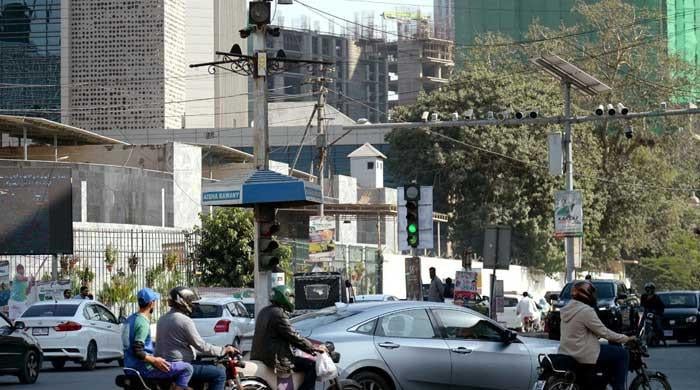Mired in lockdown economic woes, Pakistani textile magnate warns of mass layoffs
'Words need to be followed up with a concrete plan of action and implementation, which are still lacking,' Bashir said
April 06, 2020

KARACHI: A Pakistani textile magnate has warned of mass layoffs across the country as factories remain shut, the federal government lags significantly behind in the implementation of its promises, and the coronavirus lockdown leads to a staggering pile of economic woes in all classes.
In an interview with the Dawn newspaper, Gul Ahmed Textile Mills Director Ziad Bashir said his company could not ship out its export orders as "factories are completely shut owing to the non-implementation of the government’s directives".
Bashir, who is also the founder of Ideas, the company's retail wing, said there were significant cash-flow challenges, which could only be resolved "when the government returns the refunds that it owes us".
"Apart from this, we see no other solution. We’re otherwise extremely stretched in this time of crisis," said the official, whose company is one of Pakistan's biggest exporters and employs about 15,000 people. He added that there had been no follow-up on the federal government's promise of delayed bill payments, saying his firm was "receiving utility bills as usual".
On the centre's focus on exports, Bashir said plans meant nothing if there was no execution. "Words need to be followed up with a concrete plan of action and implementation, which are still lacking," he said, noting that exporters had been shut down, incurring "enormous losses on account of this inaction".
Bashir also warned that global companies may as well move their orders to other countries "if they feel their supply chain from Pakistan is not reliable". He said supply chain issues stemmed from an inability to acquire components and raw materials from abroad.
"The government hears us out, but has been unable to help physically, owing to the non-implementation of its orders on the ground," he noted. "Law enforcement agencies have been stopping all people and goods from reaching the factories, which is resulting in forced shutdowns."
Forecasting sales to drop at least 50% and stressing on lower disposable incomes on account of higher tax rates, the business magnate predicted "a huge mismatch in supply and demand, which may take up to two years to equalise again".
"If the government does not [act in time], all companies will have to lay off people. That is inevitable," he cautioned, adding that bodies such as the Employees’ Old-Age Benefits Institution (EOBI) and the Sindh Employees Social Security Institution (SESSI) need to step up and support payroll for at least three months.
Bashir also said he expected the coronavirus lockdown to continue impacting the country's economy "for the next two to three months".
"The economy will be affected long after it’s officially open. The lockdown cannot realistically last here for as long as [it did and can in] developed economies owing to ground realities.
"We need to create a fine balance between maintaining social distancing while allowing the economy to function partially and averting a complete economic meltdown," he added.
With regard to demands from the government, Bashir said "an intelligently planned lockdown" was required as opposed to a full-fledged lockdown as Pakistan had a very high number of daily-wage workers.
"This country has always run on philanthropy, particularly from Karachi. But for the first time I see these philanthropists are stretched and unable to meet the massive requirements arising out of this unplanned lockdown," he added.
He also listed down some possible steps to provide relief:
1. Waive rents and utility payments;
2. The salary and wage bill should be supported by the government for three months to help businesses get through;
3. Interest on past loans should be waived and low-interest loans should be extended to businesses;
4. Turnover tax should be waived for a year;
5. Sales tax should be waived for a year;
6. Zero-rating policy should be brought back.









